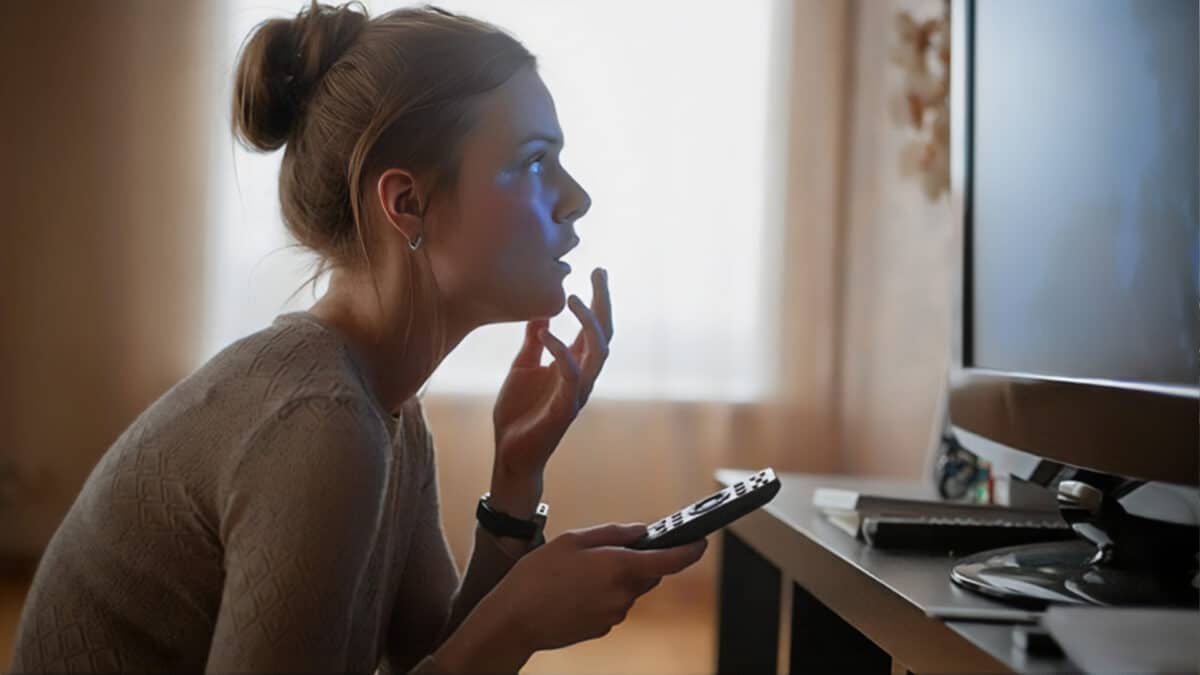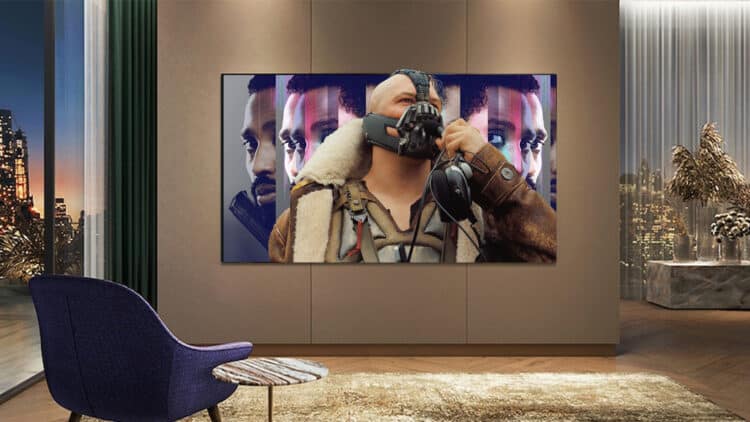There’s nothing worse than sitting down to watch a movie or TV show you’ve been looking forward to watching all week, only to be let down by shockingly lousy sound. One of the most common issues you may experience is low dialogue but very loud sound effects on TV. We’re here to help. Here is how to fix the very low dialogue but very loud sound effects on your TV.
Why Sound Is So Important
One of my favourite directors, David Lynch, famously said, “Films are 50 per cent visual and 50 percent sound. Sometimes sound even overplays the visual.” For most people, this might not be something they’ve necessarily thought about, but Lynch’s statement perfectly captures the power of sound in movies and television shows.
Visuals are there to captivate our sight, but sound is the secret weapon or the filmmaking superpower that pulls us into the story and shapes our emotional response. For example, when you’re watching a horror movie, a perfectly timed creak or even the quiet rustle of leaves can send shivers down your spine, while a soaring, large orchestral piece in a drama can leave you ‘in your feels’ (yes, in tears).
Sound effects can add layers of realism, taking something from plain to grand and epic. In my recent review of Alex Garland’s Civil War, I mentioned being moved by the sound, specifically its wise use, and I can honestly say that, at times, it impacted more than what I saw onscreen. Sound is just that important.
So, returning to our original problem, it can be extremely disappointing to connect with a beautiful story and yet find yourself annoyed by bad sound or ill-balanced sound. According to what David Lynch said, you’re essentially being robbed of 50 percent of your enjoyment.
That said, there is a huge problem with understanding dialogue in movies these days.
What Causes This Sound Imbalance?

You may be able to relate to this strange phenomenon that is occurring more and more lately: constantly having to clutch your remote control in your hand while watching a show or a movie. All of it has to do with increasingly inconsistent sound mixing, which has become a plague in modern television and film. One moment, you’re straining to hear hushed dialogue (hello, Tenet), and then the next moment, you’re blasted by the revving of Lambos in a chase scene. Why, in a world where tech is developing so quickly, should we still endure this suffering? Shouldn’t things be getting better?
The root cause could be the mix itself. Big studios may prioritize theatrical releases, where crisply calibrated sound systems can deliver an outstanding audio experience. The problem is that home entertainment systems have to cater to consumers of vastly different financial means. Hence, the quality of the hardware playing the sound differs across the board. Add to that the fact that the sound engineer’s mix built for a quiet, soundproofed or treated peace might not translate well to a living room filled with competing sounds – a humming refrigerator in the kitchen, kids making noise, or the drone of traffic outside. It can be a real mess.
Still talking about hardware, TV speakers can also be the weak link, unable to reproduce the spectrum of sound needed to enjoy a balanced experience. Even TVs at the top end of the market may still need tweaking to get the sound you want, for example, settings like dialogue enhancement to ensure clarity. Of course, it’s good that those kinds of tweaks are possible, but they only solve some things.
One thing we also can’t ignore is that there’s a creative element to this, though it’s not all-encompassing. A director’s biggest job is to evoke emotions in the viewer, so sometimes, it’s necessary to shock the senses by going from a quiet conversation to a loud explosion. But what can you practically do if you want a more balanced experience?
How To Fix Very Low Dialogue But Very Loud Sound Effects On TV
There are always debates on community forums about solutions like the ones we’re about to suggest. So we want to be clear that these aren’t ‘simply stir and serve’ type fixes as hardware quality, setting, mix quality, and other factors can come into play, but if you’ve been struggling with low dialogue and very loud sound effects, here are some things you could try to fix the issue.
- This isn’t for everyone, but if you can afford it, invest in high-quality hardware like a good set of speakers or a soundbar. We won’t namedrop brands here, but you may have to fork out for it, and it will likely be worth it.
- Adjust the centre channel of your speakers. If your system allows, you may even be able to do it in a way that’s specifically suited to your space.
- Move your sound system away from where disruptive sound might be coming from. Again, this isn’t possible for everyone, but maybe it isn’t helping you that your TV is so close to the refrigerator.
- Lastly, this might seem laughably simple, but adjust your TV’s basic sound settings. On most TVs, you’ll see those as soon as you press the menu button. Look for the options, try each, and see which one best fits your space and your liking. It might not be perfect, but it’s a start.
Do you have any additional tips for dealing with low dialogue and loud sound effects? Let us know.










